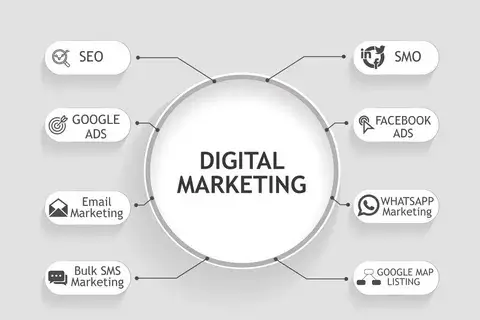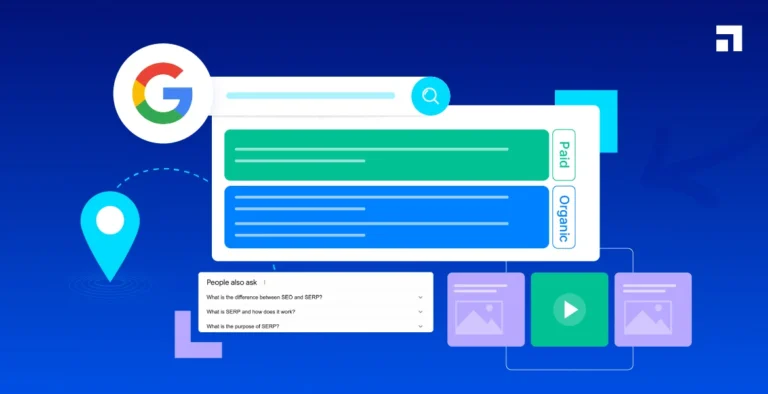10 Effective Strategies to Boost Your SERP Rankings
- Search Engine Optimization, Technical Seo
- March 26, 2024
It is essential to know how your website ranks in search engine results. SERP rankings determine how visible your site is when people search for specific topics. You are more likely to get clicks from people when you rank higher.
Analyzing your SERP ranking helps you evaluate your website’s performance online. As a result, you are able to improve the visibility of your site and attract more users. In short, being aware of your SERP ranking is like having a roadmap to make your website more popular online.

Best Strategies to Boost Your SERP Rankings
Strategies to boost your SERP rankings are explained in the given section:
Optimizing On-Page Content
Improving the content of your website is essential for both search engines and users. By optimizing your on-page content, you ensure that people can easily find and engage with your Web Pages. Make sure your titles & descriptions catch users attention, use the exact keywords, and arrange your content properly.
By doing this, you increase the chance that people will stay on your website and explore it, in addition to boosting your search engine rankings. Optimizing your content is similar to giving your website another look to increase its value to users and search engines equally.

For Example
Let’s say you are writing a blog post about healthy smoothie recipes. To optimize your on-page content, you include relevant keywords like “nutritious smoothie ideas” in your headings and sprinkle them naturally throughout your article. You also make sure your post is easy to read with clear headings and bullet points.
Utilizing Long-Tail Keywords
Consider using longer, more specific keywords instead of short, common keywords. We refer to these as long-tail keywords. You can use them to attract the exact audience to your website. Because long-tail keywords have less competition, they are less likely to show up in search engine results.
This increases the chance that people who are especially interested in what you have to offer will find your website and make it stand out. Therefore, you’re essentially making it easier for potential users to locate exactly what they’re looking for on your site. Using long-tail keywords achieves this, narrowing down search results and accurately matching specific user queries.
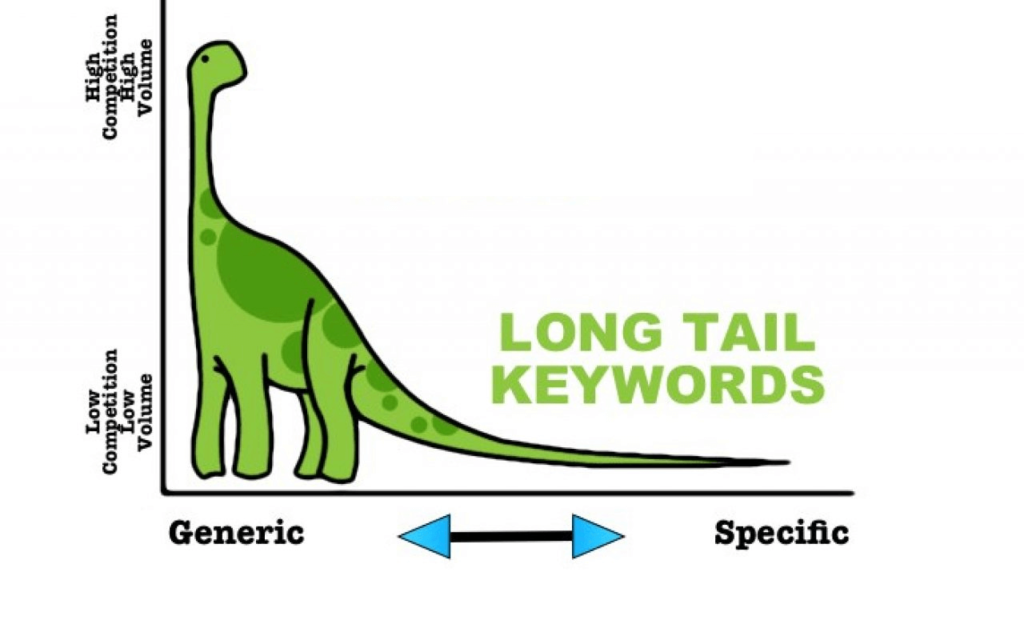
For Example
Instead of targeting the broad keyword “smoothie recipes,” you focus on long-tail keywords like “low-calorie vegan smoothie recipes.” By doing so, you attract a more specific audience interested in vegan-friendly, low-calorie options, increasing your chances of ranking higher in search results.
Enhancing User Experience (UX)
Making your website easy and enjoyable to use is super important. When users visit your site, you want them to have a good experience. This means they should be able to find what they’re looking for quickly and without any hassle.
Good user experience, or UX, also means your site looks nice, works well on different devices, and loads quickly. When you focus on improving UX, you’re not only making users happy but also increasing the chances that they’ll stay on your site longer and come back again in the future.

For Example
Picture someone visiting your bakery’s website. They should easily find your menu, location, and contact information without having to search too hard. Your website should also load quickly and look appealing on both desktop and mobile devices. This ensures a positive user experience, encouraging users to explore your site further and possibly place an order.
Building Quality Backlinks
Getting links from other trustworthy websites to yours is like getting recommendations from good sources. These links, called backlinks, tell search engines your website is trustworthy. But not all backlinks are the same; quality depends.
Getting links from trustworthy and relevant websites in your field is crucial. These links can boost your website’s authority and search engine rankings, bringing more people to visit.
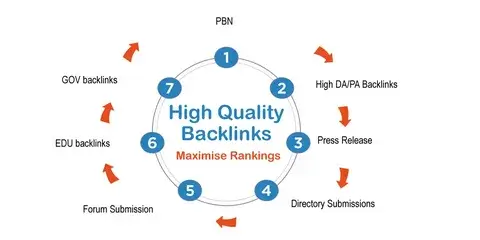
For Example
Let’s say you own a cooking blog, and a popular food website links to one of your recipes because they found it helpful. This is a quality backlink because it’s from a reputable and relevant source within your niche.
Optimizing Meta Tags
Meta tags serve as labels for your website, telling search engines about the topic of your page. These consist of different metadata, such as the page title and description. Making your meta tags engaging and informative can increase the chance that people will click on your website when it shows up in search results.
This process is optimization. Create engaging meta descriptions that appropriately represent your content to increase click-through rates and search engine visibility for your website.
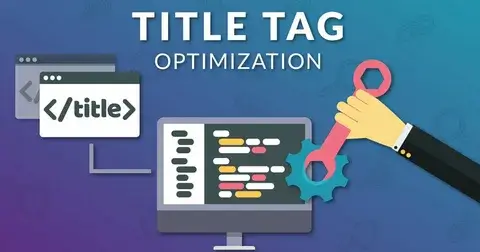
For Example
When someone searches for “best running shoes,” they see your sports store’s website in the search results with a compelling title tag (“Top 10 Running Shoes for Every Budget”) and a meta description that highlights key features and benefits, encouraging them to click through.
Creating High-Quality Content
Good content is the base of a successful website. It’s interesting, important, and beneficial to your audience. Good content provides helpful information, resolves issues, or entertains viewers, whether it takes the form of blogs, videos, or infographics.
Creating such content needs complete research, a strong understanding of your audience, and information presentation. Providing excellent content on a regular basis increases search engine rankings, creates authority, and promotes trust.

For Example
You run a travel blog, and you publish an in-depth guide on “10 Must-Visit Destinations in Southeast Asia,” complete with stunning photos, detailed descriptions, and insider tips. This comprehensive and engaging content provides genuine value to your audience.
Utilizing Schema Markup
You can use a form of code called schema markup on your website. To improve the way search engines view the content on it. It offers search engines more information about your content.
Including its description, location, and relationship to other content on your website. Use of schema markup can improve your content’s display and visibility in search engine results pages (SERPs). Increasing click-through rates & search engine rankings.

For Example
Your online store uses schema markup to enhance product listings, ensuring that search engines display rich snippets with product prices, ratings, and availability directly in the search results, making your products more attractive to potential customers.
Optimizing Website Speed
Website speed refers to how quickly your web pages load in a user’s browser. It’s an important factor in both user experience & search engine rankings. Optimizing website speed involves different techniques such as optimizing images, minimizing server response times, & leveraging browser caching.
A faster website not only provides a better experience for users but also improves your search engine rankings. Search engines prioritize fast-loading sites because they deliver a better user experience. By optimizing your website speed, you can reduce bounce rates, increase engagement & ultimately improve your search engine visibility.

For Example
After optimizing your website’s images, minifying CSS and JavaScript files, and leveraging browser caching, your site’s loading time significantly improves from 10 seconds to just 2 seconds, resulting in lower bounce rates and higher user satisfaction.
Monitoring and Analyzing Performance
To know how your Search Engine Optimization is doing, you must keep an eye on your website’s performance. This means tracking things like keyword rankings, traffic, engagement & conversions.
By regularly checking these signs, you can identify trends, find areas to improve, and make smart decisions based on data. Analyzing performance helps you figure out what’s working and what’s not, so you can keep making your website better for both users and search engines.

For Example
By regularly checking Google Analytics, you notice a sudden increase in traffic to your blog post titled “How to Improve Your Photography Skills.” Upon analysis, you experience that the post went viral on social media, leading to higher engagement and conversions. This insight generates you to create similar content in the future to capitalize on its success.
Conclusion
In today’s digital world, being successful online means making your website better with the best SEO Services. If you work with experts called SEO Marketing Agency, they can help you a lot. They’ll make sure your website shows up high in search results and more users visit it. Paying for these special services means your business can keep up and do well online.
- Boost Your SERP Rankings, Building Quality Backlinks, City Entreprise, Creating High-Quality Content, Enhancing User Experience (UX), Google Analytics, Meta Discription, Meta Title, Monitoring and Analyzing Performance, Optimizing Meta Tags, Optimizing On-Page Content, Optimizing Website Speed, Search Engine Optimization, SEO, SEO Audit Tools, SEO Trends, SERP Rankings, Strategies, Utilizing Long-Tail Keywords, Utilizing Schema Markup
Interesting Posts


CapCut Plugin by ByteDance is Now Available for ChatGPT!



7 Dynamic Content Writing Trends in 2023

What Is App Store Optimization?
Your #1 resource for digital marketing tips, trends, and strategy to help you build a successful online business
- Mark Twain Tweet



